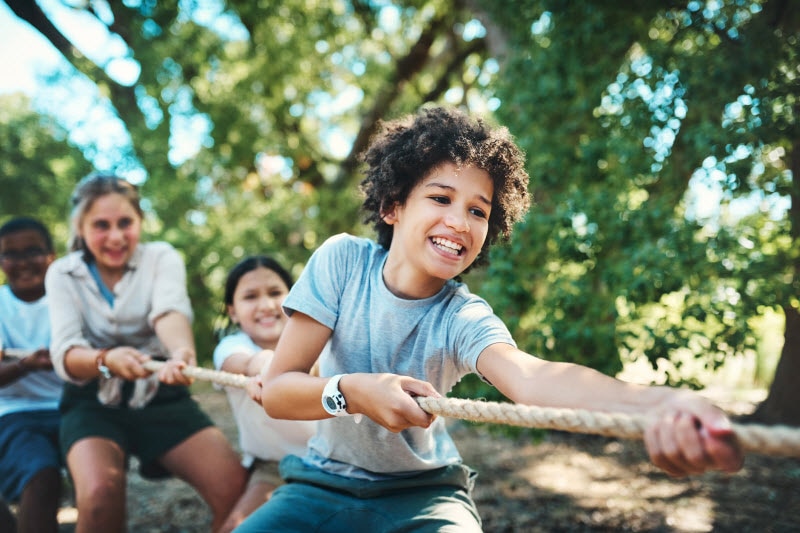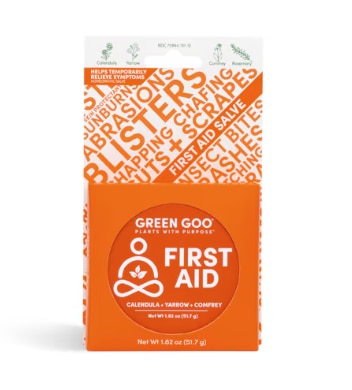Summertime and the living’s easy. Too easy, for most kids, for whom any free time gets hoovered into the world of screen. Like nature, Tiktok abhors a vacuum. While you can make the argument that kids need down time, and it’s ok for them to “rot” the summer away, as a mother of two I’m not convinced. Yes, kids have overly scheduled lives—a little unplanned time may indeed be good for them. But week after week of aimless days, without structure or activity, can do more harm than good. Left literally to their devices, you don’t ever really want to find out how many hours your daughter can spend on her phone. Hint: It’s beyond too many.
A recent study in JAMA found that children who described their tech use as “addictive”—meaning they struggled to stop or felt compelled to use it more frequently—were at greater risk for suicidal thoughts and behaviors. This pattern of compulsive use was especially widespread with mobile phones, where nearly half of participants showed signs of high dependency. By age 14, kids with strong or escalating signs of tech addiction were two to three times more likely than their peers to report suicidal ideation or self-harming behavior, according to the findings.
So while camp can be pricey and the logistics gnarly, for many parents it offers a wholesome, unplugged respite that does your kids a world of new, irl, horizons. A growing body of research suggests that summer camps are a highly effective investment in a child’s education, emotional health, leadership capacity, physical wellbeing, and sense of civic belonging. Here are 7 surprising perks of summer camp.
The benefits of summer camp
1. Independence boost
Putting your child in a new environment—with unfamiliar faces, a different routine and unexpected challenges—gives them room to flex their independence. At first it can be disorienting, but typically that morphs into empowerment. Unlike school, where the schedule is largely set and structured, camp opens the door for autonomy. Kids get to choose their activities, navigate social dynamics and make decisions on their own.
In addition, they also take on new responsibilities, like keeping track of their belongings or remembering to pack their lunch and daily essentials. Sometimes they learn this the hard way, like last year when my daughter came home without her brand-new sleeping bag. These seemingly minor tasks build self-reliance and give kids the chance to practice being accountable in a supportive, low-stakes setting. Upping the bar on their autonomy is a powerful experience for a growing child.
2. Leadership skills & confidence
It may look like s’mores and capture the flag, but summer camp is really a dressed-up version of leadership bootcamp. Camp gives kids daily opportunities to make choices, such as what activity to try, how to solve a group challenge, when to speak up. From cabin clean-up to group hikes, kids have to collaborate. Natural leaders often emerge, but even the quieter kids are encouraged to take a turn directing group tasks or offering ideas. It’s trial by fire. Trying, failing, and trying again is a huge part of camp culture. Kids build resilience and problem-solving chops, both key to leading others.
In many camps, returning or older campers are asked to guide the newbies. It’s a subtle but powerful form of peer leadership—teaching responsibility, empathy and how to model behavior rather than just enforce it. Studies have found that former campers are more likely to take on leadership roles in school and community life. One reason is they’ve already been in situations that require initiative, emotional intelligence, and teamwork.
3. Emotional intelligence
Summer camp is a crash course in emotional intelligence. Kids are dropped into a completely new environment, surrounded by unfamiliar faces and routines, where they must quickly learn to navigate group dynamics, resolve conflicts and manage their own reactions, all while away from the emotional safety net of home. This social immersion fosters self-awareness as children recognize their own feelings (like homesickness or frustration) and begin to regulate them without constant adult intervention.
It also strengthens empathy, as campers live, play and problem-solve alongside peers from diverse backgrounds. Camp’s focus on team-based activities demands cooperation, active listening, and perspective-taking, all foundational elements of emotional intelligence.
4. Explore new passions
Unlike school, where activities are often prescribed and graded, camp gives kids the freedom to explore new directions, they might not normally have access to, such as horseback riding, sailing or backpacking. Because it’s a supportive, non-competitive environment, kids are more likely to take risks and step outside their comfort zones. Sometimes, the passion might prove to be a dud. But other times, camp can spark a lifelong love of a budding passion that will accompany your child throughout their life.
5. Develop stronger sense of community & friendships
Camp is a time to learn how to foster new friendships. Unlike school, where social groups are often already established, camp offers a fresh social slate. Kids are dropped into new environments where no one knows their reputation, their GPA or their lunch table status. You can step into who you really are, which creates fertile ground for genuine connection.
Shared experiences—especially the kind that involve challenge, laughter or late-night vulnerability—encourage fast, often deep, bonds. Many campers come home with lifelong friends, as well as the skills that can help them make new ones, wherever they go.
6. Connect with nature
Many outdoors-focused camps are designed to immerse kids in the natural world. These camps often stretch over days or weeks, offering repeated, hands-on contact with forests, lakes, trails and wildlife. Kids learn to identify birds by their calls, spot animal tracks in the dirt and read the sky for signs of changing weather. They might learn how to build a fire, navigate with a compass or sleep under the stars, skills that simultaneously instill both awe and self-sufficiency.
More importantly, the rhythm of camp life slows kids down enough to notice nature. Without phones or Wi-Fi, they begin to tune into things like the rustling of trees, the chill of morning air or the quiet stillness at dusk. These repeated encounters build a kind of intimacy with the natural world. For many kids, especially those who live in cities or spend most of their time indoors, this is their first real chance to belong to nature rather than just observe it. Research backs this up: consistent time in nature is linked to reduced anxiety, better focus and a stronger sense of environmental stewardship.
7. Increased academic engagement
At camp, kids are constantly adapting to new schedules, new people, and new problem-solving moments (like figuring out how to build a raft or navigate a group scavenger hunt). That kind of mental agility transfers well to academics, helping with comprehension, focus and adjusting to new material once school resumes.
And indirectly, when kids get a break from academic pressures, their natural curiosity often reawakens. Camp can be a reset button that recharges their minds and primes them for learning.




